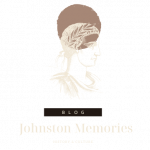Navigating the digital landscape for news can be overwhelming amid the vast amount of information available online. Knowing how to identify reliable sources and create a balanced news diet is essential for staying well-informed while avoiding misinformation and news anxiety.
Finding reliable news sources
The digital age has transformed how we consume news, creating both opportunities and challenges. With countless publications available at our fingertips, developing media literacy skills has become crucial for filtering quality journalism from misleading content.
Evaluating credibility factors of online publications
When assessing news sources, critical thinking must guide your evaluation process. Quality journalism typically demonstrates transparency about authors, provides clear citations, and presents information without excessive sensationalism. Reputable organizations like Reuters, Bellingcat, and The Conversation maintain rigorous fact-checking standards. Before accepting information as factual, verify details across multiple sources and check if the publication adheres to journalistic ethics. You can find excellent resources about media literacy and source verification on https://www.comfusion.es/ to help strengthen your evaluation skills.
Creating a diverse news source portfolio
Building a varied collection of news sources helps combat information overload while ensuring exposure to different perspectives. Consider including publications from various regions and ideological standpoints, such as Courrier International and Le Monde for international coverage. Mixing formats can also enhance your news consumption experience—combining traditional reporting with analytical pieces and specialized newsletters. Many readers find that limiting consumption to specific times prevents news anxiety while still staying informed. Creating a thoughtful media diet requires intentional curation rather than passive scrolling through endless feeds.
Effective news filtering strategies
Staying informed about current events has become both a professional necessity and social responsibility in today's digital landscape. The challenge lies not in accessing information but in managing the overwhelming flood of content while avoiding misinformation. Media literacy has become an essential skill for navigating the digital information ecosystem where quality journalism competes with sensationalism designed to capture our attention.
The attention economy has transformed how news is delivered, with many platforms prioritizing engagement over accuracy. This shift has led to information overload and contributed to rising news anxiety among regular consumers. Developing a balanced media diet requires intentional curation and critical thinking skills to separate fact from fiction.
Setting up personalized news alerts and feeds
Creating a customized system for news delivery can significantly reduce information overload while ensuring you stay informed about topics that matter to you. Start by identifying quality sources known for factual reporting and thorough source verification like Reuters, Bellingcat, Ground News, and The Conversation. These outlets prioritize accuracy over sensationalism.
Consider using specialized tools to manage your information curation. Email newsletters delivered at scheduled times can replace constant social media updates. Many readers find saving articles to reading apps like Pocket creates a more intentional approach to news consumption. Some have found success by implementing digital minimalism techniques such as uninstalling news apps, using browser extensions like Facebook Newsfeed Eradicator, or employing site-blocking tools to regain control over technology habits.
Balancing depth and breadth in news consumption
Diversifying your information diet is crucial for developing a comprehensive understanding of current events. This means reading across different regions, ideologies, and formats. International sources like Courrier International and Le Monde offer perspectives that might be absent from domestic coverage. When consuming news, practice asking critical questions about sources, potential biases, and verification methods.
Fact-checking has become an essential component of media literacy. Resources like Google Scholar and the European Fact-Checking Standards Network can help verify dubious claims. Supplementing news consumption with books that strengthen critical thinking skills can provide deeper context for current events. Titles like “Think Again” by Adam Grant and “Foolproof” by Sander van der Linden explore how we process information and resist manipulation.
Many people find that revisiting traditional formats like physical newspapers offers a more curated, finite experience compared to endless online scrolling. This structured approach to news consumption supports digital wellbeing by creating natural boundaries around information intake. The key question to ask yourself regularly is whether your news consumption habits are serving you or whether you've become captive to algorithms designed to maximize engagement rather than understanding.




